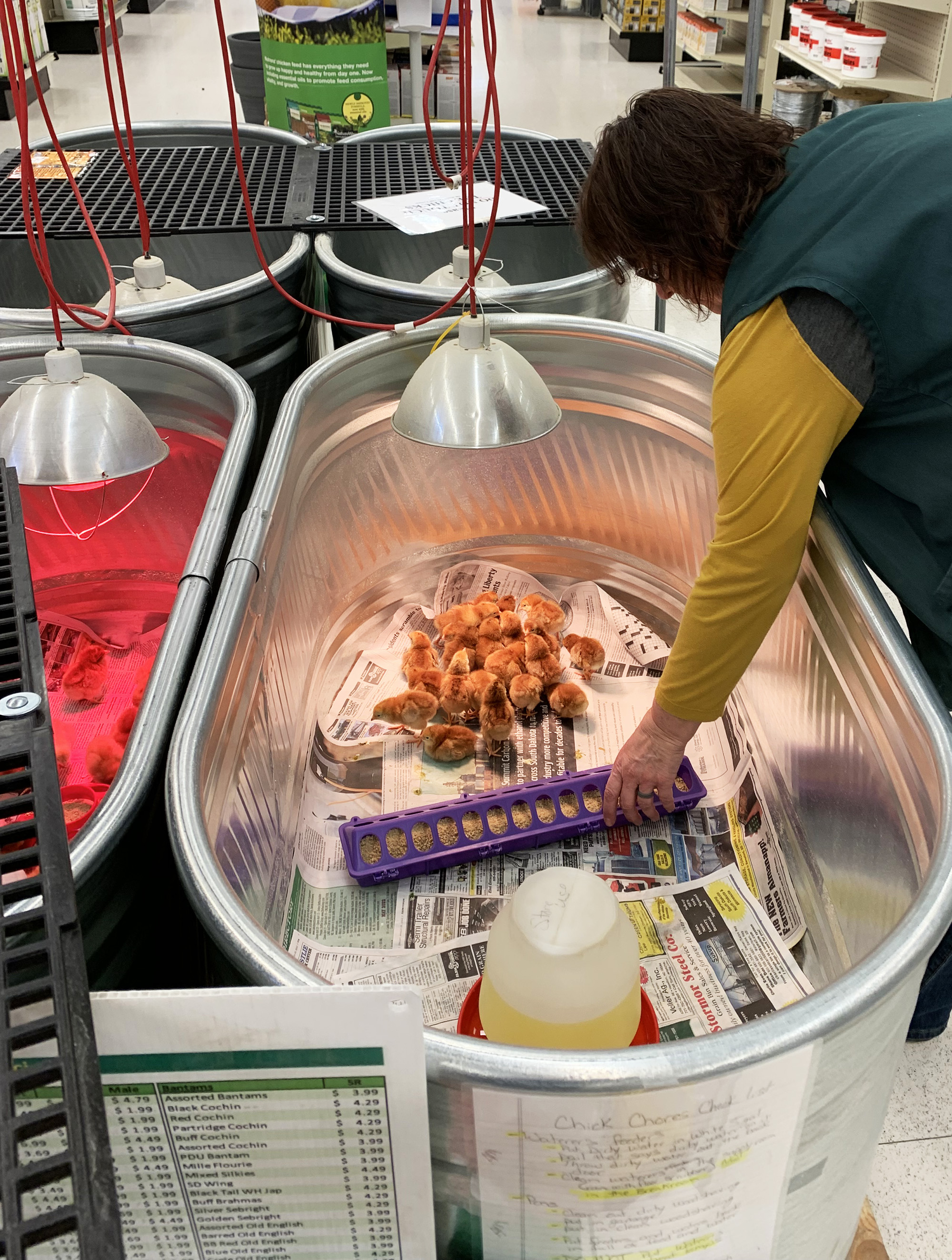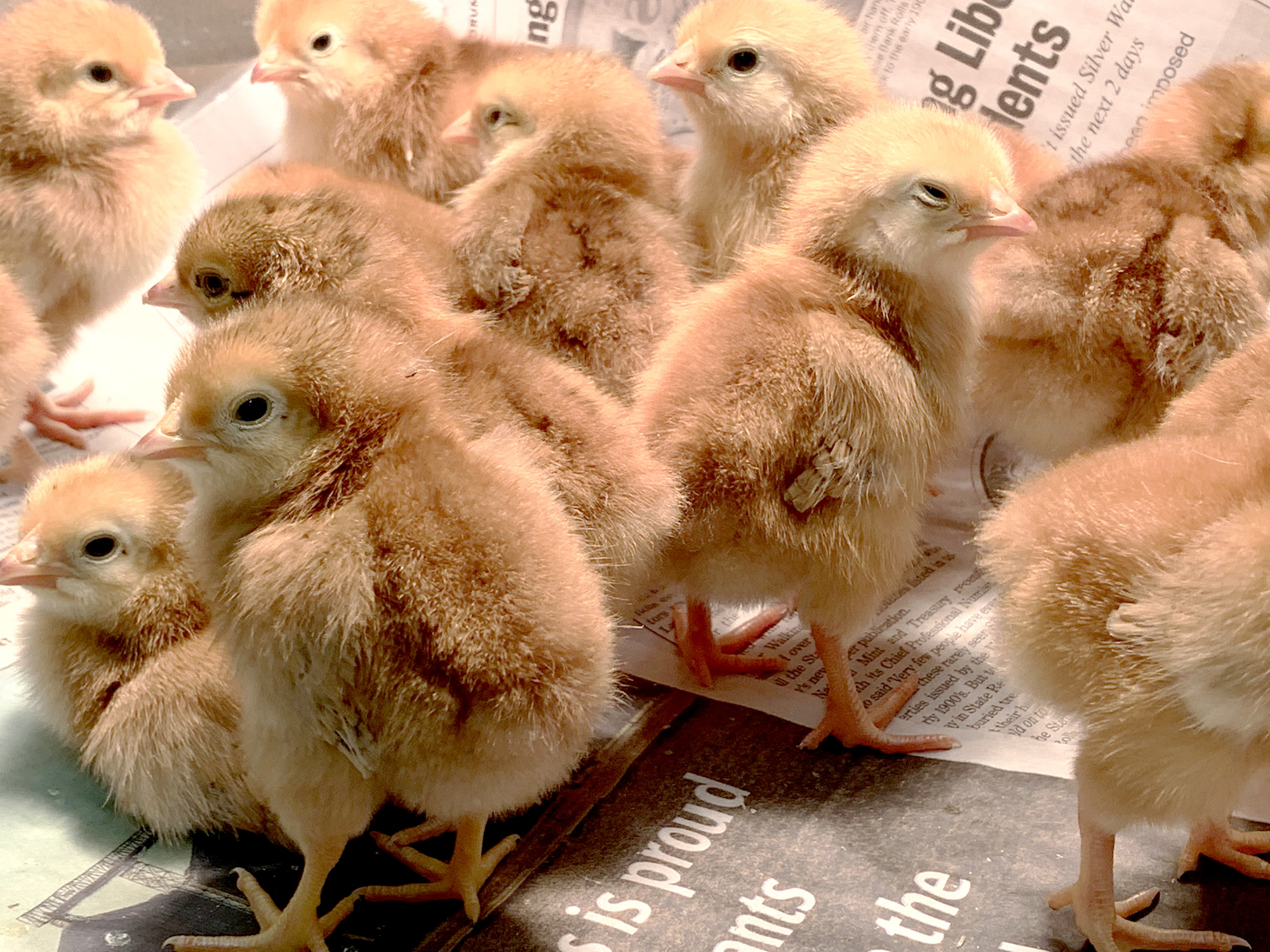 ,
, 
A deadly poultry virus has prompted state animal health officials to ban poultry sales and exhibitions until May 1.
The move is an attempt to stop the spread of the highly pathogenic avian influenza (HPAI). Reports of the H5NI virus in Minnesota and surrounding states poses a high risk to poultry but low risk to the public.
The ban includes all community poultry sales, swaps, fairs and exhibitions where poultry and susceptible birds are brought together.
The Minnesota Board of Animal Health issued the ban on March 31.
“Viruses like HPAI need hosts to continue to spread,” said state veterinarian Dr. Beth Thompson.
“It’s our job to stop the spread of the disease. Unfortunately, in this situation, we feel one of the best things we can do for the health of all birds in Minnesota is to take a pause on poultry events through May 1.”
Poultry sales permitted at Bomgaars
The busy chick-purchasing season at Bomgaars in Luverne will continue even as the state bans poultry sales and exhibitions temporarily until May 1.
Bomgaars purchases young poultry stock for retail from Hoover’s Hatchery in Rudd, Iowa, an authorized seller with the National Poultry Improvement Plan.
Under the NPI plan, poultry breeders voluntarily submit to regular testing and inspections of their flocks to make sure the poultry is free from certain diseases.
Hope Schelhaas oversees the poultry sales in Luverne.
She said the store follows several biosecurity protocols when it comes to poultry sales including no touching of the young birds by the public.
“We also have a handout from the state inspector about the avian flu to give to customers,” Schelhaas said.
On average, the Luverne store sells 200 chicks of various poultry breeds each week. As Easter approaches, demand rises to 300 chicks a week.
“Sometimes we no more than put them in the tank before they are being taken out again,” said Bomgaars manager Darrel Nielsen.
“We are selling as normal until we are told differently.”
Flu last detected in state seven years ago
In 2015 the avian flu ended all poultry sales, including those at authorized dealers like Bomgaars for a month.
The 2015 ban also canceled 4-H poultry shows at the Rock County Fair and the Minnesota State Fair.
University of Minnesota 4-H Extension officials are monitoring the HPAI in the state. So far, no decisions to alter any of the local and state poultry shows has been made.
“Extension has been keeping us updated on what the Minnesota Board of Animal Health has come out with,” said local 4-H program coordinator Kelsey Maeschen.
No food safety concerns from virus
There is no food safety concern for customers from the avian virus. However, the depopulation of commercial poultry facilities could mean breaks in the supply chain.
Currently the supply of eggs and poultry products at Sunshine Foods in Luverne has not been affected, but store manager Jason Oye has seen an uptick in egg prices over the past several weeks.
A dozen large carton cost $2.99. While it is typical that egg prices rise slightly as Easter approaches, the price surprises Oye.
“Right now, the price of eggs hasn’t been higher,” he said. “I’ve never seen them this high before, and that’s our cost. I don’t want to go higher.”
Chicken products coming into Sunshine Foods are frozen and Oye said warehouses have indicated they have adequate supplies right now.
However, depopulation of HPAI-affected poultry barns could mean a gap in the future, especially turkeys.
Emergency response
Gov. Tim Walz signed an executive order waiving trucking regulations to help fight the spread of avian influenza and mitigate the risk to Minnesota’s poultry industry.
The waiving of the strict weight and hours of service enforcement lessens truck traffic between farms to safely move more commodities used in the H5N1 response.
The lessening of the trucking regulations remains in effect through April 30.
Walz also activated the USDA emergency response team to support the state’s containment efforts.
Minnesota ranks No. 1 in the U.S. in turkey sales with 40 million birds raised annually.
The avian flu, spread by migrating wildlife, was discovered March 25 in a commercial turkey farm (289,000 14-week-old toms). The barn was depopulated.
A backyard flock in Mower County mixed with chickens, ducks and geese (17 birds) also reported increased mortality and tests are currently being completed.
“These are the first cases of HPAI in the state of Minnesota since 2015,” said Dr. Dale Lauer, poultry program director with the animal health board.
Biosecurity is paramount in stopping the spread of the disease, he said.
More information on confirmed cases, including information and resources for flock owners, can be found on the state Board of Animal Health’s response website, www.bah.mn.us.


